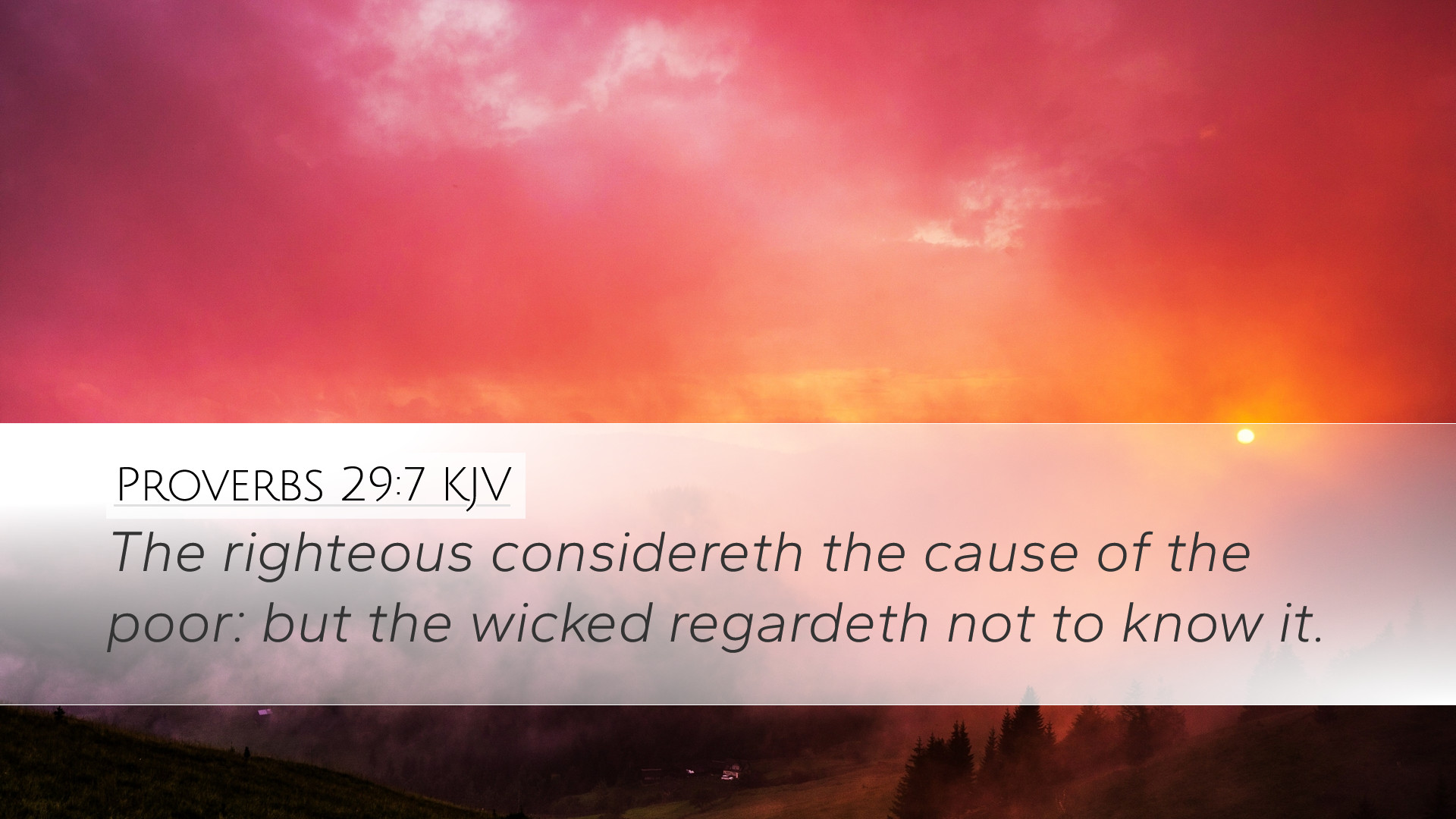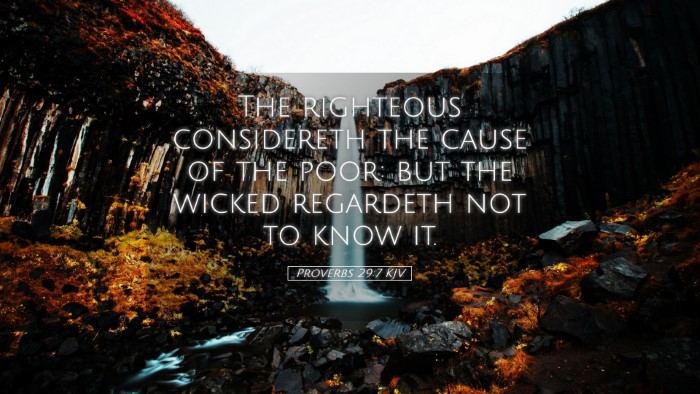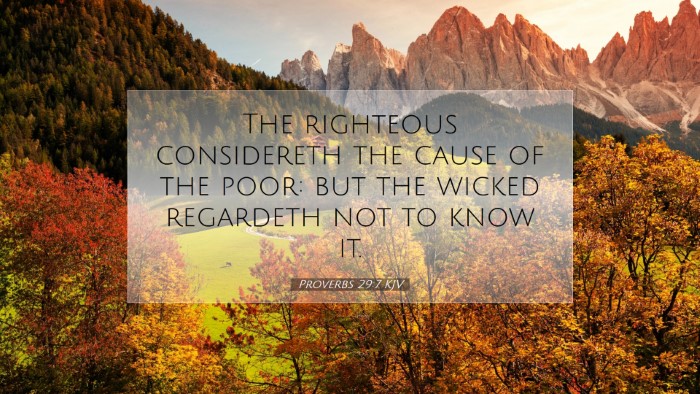Commentary on Proverbs 29:7
Verse: “The righteous considereth the cause of the poor: but the wicked regardeth not to know it.”
Introduction
This verse from the Book of Proverbs reflects the core values of justice and compassion, highlighting the moral distinctions between the righteous and the wicked. In examining this passage, we can draw on the insights of several esteemed biblical commentators, including Matthew Henry, Albert Barnes, and Adam Clarke.
The Righteous and the Poor
Matthew Henry emphasizes that the righteous are those who possess a strong moral character and a deep sense of social responsibility. They are committed to ensuring equity and care for the less fortunate, recognizing their plight, and taking action. For Henry, this consideration stems from a heart influenced by a righteous nature that reflects God's justice.
Albert Barnes expounds that “considereth” indicates a thoughtful and reflective engagement with the needs of the poor. It suggests an active concern that leads to meaningful support for those in distress. The righteous seek to understand the circumstances of the poor, thereby enabling them to respond appropriately and effectively.
Adam Clarke adds that the righteous person not only sympathizes with the poor but makes their cause their own. This compassion translates into advocacy, where one endeavors to alleviate suffering and promote social welfare. Clarke posits that the righteous feel a collective responsibility toward societal injustices.
The Wicked and Their Indifference
In contrast, the latter part of the verse contrasts the righteous with the wicked. Henry points out that the wicked person exhibits a troubling lack of concern for others, particularly for those who are vulnerable. This disregard is not merely an act of negligence but reflects a life led by self-interest.
Barnes interprets “regardeth not to know it” as an active choice to remain ignorant of the needs and sufferings of others. The wicked are characterized by apathy and detachment, often prioritizing their desires over the welfare of the community. This refusal to engage with the poor or acknowledge their struggles is indicative of a deeper moral failure.
Clarke comments that such indifference correlates with a broader lifestyle of unrighteousness. Conversely, the wicked person’s self-absorption leads them to disregard human suffering, which stands in stark contrast to the ethical obligations of the righteous.
Social Responsibility in a Theological Context
This verse powerfully communicates the theological principle of social responsibility that runs throughout the scripture. The righteousness of God is manifested in acts of justice and mercy, a theme that is reiterated throughout the Bible. Henry articulates the crucial role that believers play in advocating for the disadvantaged, suggesting that their witness is intimately connected with their treatment of the poor.
Barnes affirms that true religion inevitably produces a compassionate response to the needs around us. The righteous act as stewards of God’s justice, reflecting His character through their acts of kindness and service. This engagement not only assists the poor but also serves as a testimony to the transformative power of faith.
Clarke emphasizes that ignoring the cause of the poor not only harms those in need but also leads to detrimental societal impacts. A community that neglects the welfare of its most vulnerable members is fundamentally flawed and may suffer the repercussions of such neglect.
Practical Applications
- Pastoral Care: Pastors are called to embody the heart of the righteous by advocating for social justice within their communities. They can facilitate programs that help the poor and marginalized and promote awareness among congregation members.
- Theological Study: Theology students and scholars should explore the implications of this verse in their research. Understanding the biblical foundation for caring for the poor can deepen their insights into God’s character and mission.
- Community Engagement: Churches and Christian organizations can develop initiatives that specifically address the needs of the poor. This could include food banks, counseling services, and advocacy groups to influence local policies.
- Personal Reflection: Individuals are encouraged to introspect on their own attitudes towards social injustices and consider how they can actively engage in supporting those in need.
Conclusion
Proverbs 29:7 serves as a profound reminder of the moral obligation that comes with righteousness. The compassionate consideration of the poor is not a mere recommendation; rather, it is a reflection of one's character and faith. Through the insights of Matthew Henry, Albert Barnes, and Adam Clarke, we understand that a life aligned with God's vision is one that embodies justice and mercy—ensuring that the needs of the vulnerable are not overlooked, but championed.


